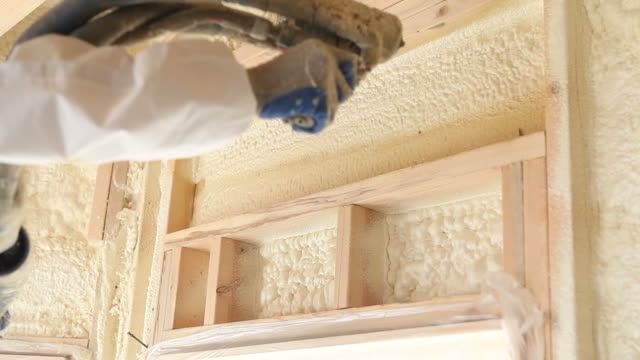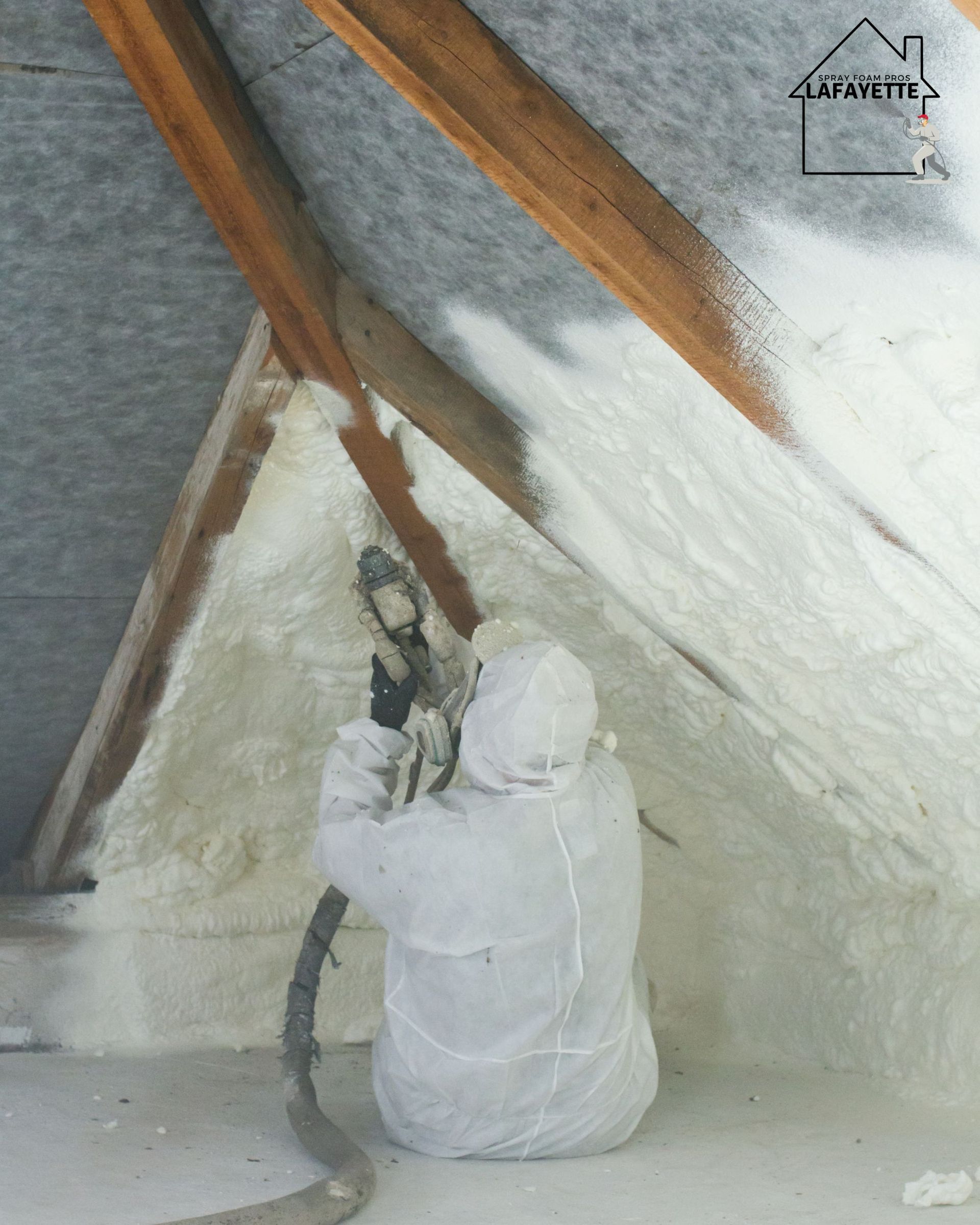Blog Layout
Protect Your Home The Right Wat with Spray Foam Insulation Installation in Lafayette
Sep 24, 2023
Kickstart Your Home Protection In The Proper Way

Nestled in the heart of Louisiana, Lafayette experiences a subtropical climate characterized by hot and humid summers and mild winters. With the region's climate extremes, homeowners and business owners alike are constantly seeking effective ways to maintain comfortable indoor temperatures while optimizing energy efficiency. Spray foam insulation has emerged as a highly effective solution for achieving these goals. In this comprehensive guide, we'll explore the world of spray foam insulation installation in Lafayette, delving into the benefits, installation process, considerations, and more to help you make informed decisions for your insulation needs.
Understanding the Importance of Insulation
The Role of Insulation in Lafayette
Explore how insulation contributes to energy efficiency, indoor comfort, and moisture control in Lafayette's climate.
Challenges of Inadequate Insulation
Understand the consequences of poor insulation, including energy waste, temperature fluctuations, and potential moisture-related issues.
Introduction to Types of Insulation Materials
Spray foam insulation is a highly effective method of insulating residential and commercial buildings. It is renowned for its ability to create an airtight seal, effectively preventing heat transfer and reducing energy costs. There are two primary types of spray foam insulation materials: open-cell and closed-cell. In this guide, we will explore these two types, their characteristics, and their applications.
Open-Cell Spray Foam Insulation
Open-cell spray foam insulation is a popular choice for a variety of applications. It gets its name from the fact that the cells within the foam are not completely closed, allowing them to be filled with air. Here are some key features of open-cell spray foam insulation:
Density: Open-cell foam is less dense than closed-cell foam, making it softer and more flexible.
R-Value: While open-cell foam has a lower R-value compared to closed-cell foam, it still provides decent insulation, particularly when installed in greater thicknesses.
Expansiveness: Open-cell foam expands significantly after application, which can help fill gaps and voids in walls and ceilings.
Sound Absorption: One of the notable advantages of open-cell foam is its excellent sound-absorbing properties, making it ideal for noise reduction in residential and commercial spaces.
Moisture Vapor Permeability: Open-cell foam allows moisture vapor to pass through, which can be beneficial in some applications but may require a vapor barrier in others.
Applications of Open-Cell Spray Foam Insulation
Open-cell spray foam insulation is commonly used in:
· Wall cavities
· Attics
· Interior walls
· Soundproofing applications
· Moisture-prone areas (with proper vapor barriers)
Closed-Cell Spray Foam Insulation
Closed-cell spray foam insulation is characterized by its densely packed cells, which are sealed and filled with a gas, typically HFC or HCFC. Here are some key features of closed-cell spray foam insulation:
Density: Closed-cell foam is denser and more rigid than open-cell foam, providing structural support to walls and roofs.
R-Value: Closed-cell foam has a high R-value per inch, making it one of the most efficient insulation materials available.
Strength: Its rigidity adds structural strength to the building, making it an ideal choice for hurricane-prone regions.
Air and Moisture Barrier: Closed-cell foam acts as both an air and moisture barrier, providing exceptional protection against drafts and moisture infiltration.
Fire Resistance: Closed-cell foam is highly fire-resistant, adding an extra layer of safety to buildings.
· Applications of Closed-Cell Spray Foam Insulation
· Closed-cell spray foam insulation is often used in:
· Exterior walls
· Roofing systems
· Crawl spaces
· Basements
· Areas prone to moisture infiltration
· Commercial buildings
· Marine and industrial applications
Choosing the Right Spray Foam Insulation
The choice between open-cell and closed-cell spray foam insulation depends on various factors, including your budget, the intended application, climate conditions, and desired R-value. Open-cell foam is typically more cost-effective and excels in soundproofing applications. Closed-cell foam offers superior thermal insulation, moisture resistance, and structural support but comes at a higher cost.
Spray Foam Insulation: A Versatile Choice
Highlight the unique characteristics of spray foam insulation, including its effectiveness in sealing gaps and its R-value.
Comparing Insulation Types
Compare spray foam insulation to other common types, such as fiberglass and cellulose, in terms of performance and installation.
Benefits of Spray Foam Insulation
Energy Efficiency
Explain how spray foam insulation's air-sealing properties can significantly reduce energy consumption and utility bills.
Improved Indoor Comfort
Discuss how spray foam insulation enhances indoor comfort by maintaining consistent temperatures and reducing drafts.
Moisture Control
Explore how spray foam insulation acts as a moisture barrier, preventing issues like mold and mildew growth.
The Spray Foam Insulation Installation Process
Site Assessment
Detail the initial inspection and assessment of the property to determine insulation needs and identify problem areas.
Preparation
Describe the steps taken to prepare the area for insulation installation, including sealing gaps and protecting surfaces.
Application
Walk through the process of applying spray foam insulation, including the equipment used, techniques employed, and safety precautions.
Curing and Inspection
Explain how the insulation cures and the importance of post-installation inspection to ensure proper coverage and performance.
Considerations for Spray Foam Insulation Installation
Cost Factors
Break down the cost considerations associated with spray foam insulation, including material costs, labor, and potential energy savings.
Building Codes and Regulations
Highlight the importance of complying with local building codes and regulations when installing spray foam insulation.
Environmental Impact
Discuss the environmental impact of spray foam insulation, including concerns about off-gassing and eco-friendly alternatives.
Benefits of Professional Installation
Emphasize the benefits of hiring certified professionals for spray foam insulation installation, such as expertise, safety, and warranty coverage.
Maintaining and Monitoring Spray Foam Insulation
Regular Inspections
Discuss the importance of periodic inspections to ensure the longevity and effectiveness of spray foam insulation.
Addressing Issues
Provide guidance on addressing common issues like damage, pests, or moisture infiltration to preserve the insulation's performance.
A More Comfortable and Efficient Lafayette
By understanding the benefits, installation process, and considerations associated with spray foam insulation, you can make informed decisions to create a more comfortable, energy-efficient, and sustainable living or working environment in Lafayette. Whether you choose DIY installation or enlist the expertise of professionals, spray foam insulation is a valuable investment that can bring long-term benefits to your property in this vibrant Louisiana city.
You might also like
SPEAK TO A TEAM MEMBER TODAY
© 2024
All Rights Reserved | Spay Foam Pros Lafayette



